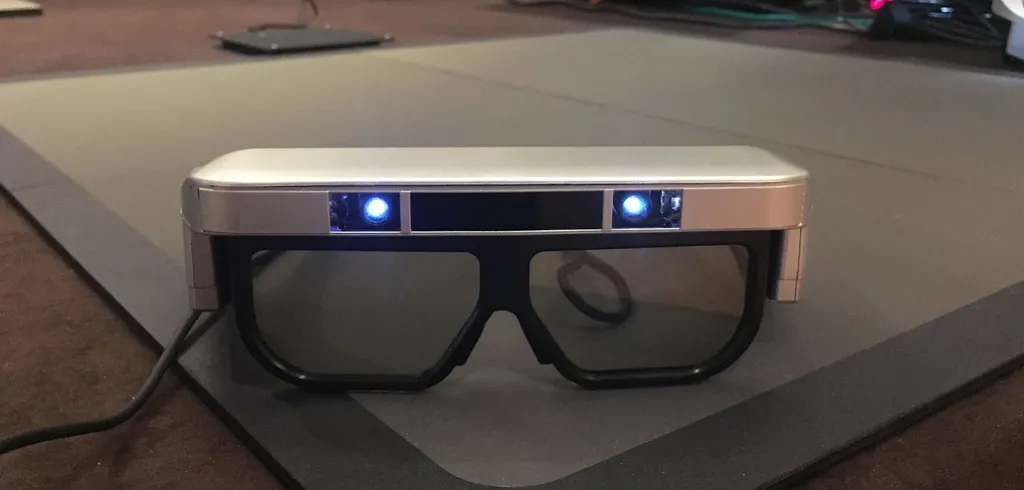Last we heard, augmented reality startup CastAR was due to finally launch its pair of AR glasses later this year. Now it looks like they might not be released at all.
Polygon reports that CastAR yesterday laid off a significant amount of its workforce (less than 70 employees) and shuttered Eat, Sleep, Play, its recently-acquired internal development studio. The site sources former employees in saying that the company has been unsuccessful in raising investment for a series B round and former financer Playground last week refused to provide any further funds. Playground had provided the company with $15 million in 2015.
We’ve reached out to the company to confirm the validity of the report.
CastAR’s glasses are quite unlike any other AR solutions we’ve seen. The headset is paired with a sheet-like material that, when viewed through the lenses, depicts virtual images in the real world. Imagine laying the mat on a table and looking down into the level of a videogame, for example. The tech promised to be affordable for consumers in comparison to other VR and AR solutions.
The company itself started when former Valve employees Jeri Ellsworth and Rick Johnson left in 2013 with their AR research. Later that year it would run a hugely successful Kickstarter campaign, raising over $1 million.
The news hits less than a year after CastAR went on a huge expansion drive. Last August it appointed former LucasArts employee Darrell Rodriguez as CEO and Disney and Zynga staffer Steve Parkis as President and COO. Then in September it opened a new office in Salt Lake City, and took on former members of PlayStation, Google, and Activision in October. Finally in November it acquired Eat, Sleep, Play, which formerly worked with games industry legend David Jaffe on the 2012 entry in the Twisted Metal series.
Polygon states that, although much of the staff has been let go, remaining members are still trying to sell the technology. In an age in which phones are increasingly capable of advanced AR experiences and products like HoloLens are on the distant horizon, we wonder if there’s space for a product like CastAR, even at its low cost.


























